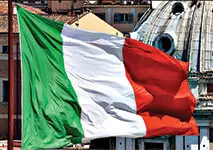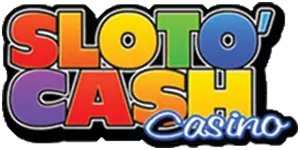Italian Casinos
Hunting for the best online casinos in Italy? Below you will find our expert-picked Italian-friendly casino sites with fast payouts and localized help.
Italy has a rich history when it comes to gambling and is regarded as the birthplace of the world’s first brick-and-mortar casino (Casinò di Venezia). It is therefore unsurprising that most forms of gambling are legal and regulated in the country, both in land-based and digital form. Remote gambling operators must obtain a license from the Agenzia delle Dogane e dei Monopoli (ADM) to legally provide online slots, table games, bingo, and peer-to-peer poker to players from the Boot. Apart from issuing licenses, the ADM is tasked with the regulation and taxation of the online gambling sector. The body ensures compliance, enforces penalties for violations, and promotes responsible play to mitigate gambling harm.
The country has a rather liberal regulatory framework as both foreign and domestic businesses can apply for iGaming licenses from the ADM. Italian players enjoy a healthy choice of online casinos within a mature and properly regulated market that is set to witness further growth and liberalization in the future. This article gives you an in-depth look at the current gambling regulations in Italy, alongside an unbiased ranking of the best online casinos accepting Italian players and the payment methods they support. We have included brief reviews to give you a better idea of what our recommended casinos are all about.
Most Popular Italian Online Casinos
Over 400 gambling sites are presently authorized by the ADM to offer their services on Italian soil. While having options is always great, the enormous choice local players face makes finding the best online casinos mightily difficult. But worry not, as we are here to assist you in this venture with our honest ranking of the best Italian online casinos.
We made our top picks after a painstaking vetting process spanning multiple criteria, including the range of payment methods, withdrawal speed, customer support quality, and gaming diversity. Our brief reviews provide valuable insights into the casinos recommended below to help Italian players make the right choice.
Italy’s Stance on Online Gambling
 Until recently, all forms of interactive gambling that involved betting on games of chance (as opposed to games of skill) were considered illegal under Italian legislation, with sports betting being the only exception to this rule. The Italian authorities allowed only a few operators to offer such gambling services, and these were all backed by the state itself, so the number of options for players from the country was rather limited.
Until recently, all forms of interactive gambling that involved betting on games of chance (as opposed to games of skill) were considered illegal under Italian legislation, with sports betting being the only exception to this rule. The Italian authorities allowed only a few operators to offer such gambling services, and these were all backed by the state itself, so the number of options for players from the country was rather limited.
Thankfully for Italian gambling enthusiasts, this all changed in 2006, when the European Commission pressed the country’s government to introduce amendments to its restrictive stance on online gambling. The Commission even conducted a special investigation into the regulations concerning the gambling industry in the country.
This led to the introduction of new legislation aimed at regulating specific games of skill and opening the limited betting market to online sports betting providers based outside Italy. That being said, only operators based in countries that are members of the EU or part of the European Free Trade Association are allowed to offer their services and products to Italian residents.
The following years saw the regulation of more and more forms of interactive gambling. In 2007, games of skill, and poker in particular, were legally offered over the internet to Italian players, albeit only in the form of tournaments. In the two years that followed, yet more changes were made as video poker and cash games were also permitted online. It was not until 2010 that games of chance with fixed odds, such as craps and roulette, were added to the list of legal gambling forms Italian residents could engage in.
The investigation conducted by the European Commission targeted the restrictive online gambling legislation of the country. In fact, the Italian government had gone as far as to prevent players from accessing the websites of online gambling providers based outside the country. The Italian authorities had no option but to yield to the pressure of the European Commission, which led to the introduction of favorable amendments to Italy’s rigid interactive gambling laws.
In 2010, the country’s government finally gave the green light to foreign gambling operators, allowing them to offer their services and products in Italy. The only condition the operators are required to meet is to receive a license from the local Italian regulator – Agenzia delle Dogane e dei Monopoli (ADM), which translates as Customs and Monopolies Agency. Currently, the number of operators holding such a license exceeds one hundred, with Italian players being able to engage legally in a wide range of virtual casino games, including slots, video poker, keno, roulette, blackjack, and poker.
Italy’s Gambling Regulatory Body
All gambling activities in the country, both offline and online, are licensed and regulated by the aforementioned ADM, which is located in the capital Rome. Only this entity has a say in which online gambling operators will receive an Italian license and which ones will be denied one.
Before the ADM gives its stamp of approval to any foreign gambling operator, the latter must provide evidence that all requirements set forth by the regulatory entity are met in their entirety. This is achieved by supplying various documents concerning the social, financial, and technical aspects of the operation of interactive gambling websites based outside Italy.
The operators’ websites need to be technically up to par, ensuring their service is secure, stable, and user-friendly. In addition, virtual casinos should be based in countries that are members of the European Union. Apart from that, various taxes must be paid by the operators, but you will be able to read more on this in the section to follow.
-
SNAI Casino
SNAI Casino offers Italian players a vast selection of gaming options from a broad spectrum of software suppliers, ensuring a rich and varied gambling experience for all Italian players. Licensed and regulated by Italy’s ADM, the casino caters to all preferences with an extensive collection of high-stakes live tables, video poker variations, and captivating online slots.
Website snai.it Licenses ADM Year Established 2008 Support Channels snaispa@snaitech.legalmail.it Available Bonus 100% Welcome Bonus up to €1,000 Compatibility Android, Apple, Windows Deposit Methods Maestro, PayPal, PostePay, Visa, Credit Cards, Skrill, Bank Transfer, SNAI Card, Mastercard, Prepaid Cards Withdraw methods Bank transfer, PayPal, PostePay, Skrill, Domiciliary postal transfer, Credit cards, Visa, Mastercard At SNAI, Italian gambling enthusiasts can dive into an extensive pool of live casino games that bridge the gap between virtual and landbased casinos, delivering a highly interactive and realistic gaming experience. Thanks to SNAI’s collaborations with top providers like Evolution Gaming and Playtech, players can expect seamless streaming, engaging gameplay, and a plethora of choices from roulette to poker, all accessible through a verified SNAI account.
Slot aficionados are also in for a treat at SNAI Casino, with a comprehensive catalog that showcases titles from industry giants such as NetEnt and Microgaming. The collection features both classic and modern slots, including games with progressive jackpots like Age of the Gods. Promotional incentives like the welcome bonus and free spins offers can make players’ experience both rewarding and exhilarating.
Pros- Offers native apps for iOS and Android
- Part of the G4 program for responsible gambling
- Extensive game catalog
- Detailed FAQ section for self-help
Cons- One language option only (Italian)
- Access to live chat requires registration
-
888casino
With over two decades of experience up its sleeve, 888casino has built a massive collection of premium casino games across all popular categories. The catalog is furnished by an impressive lineup of software giants such as Play’n GO, NetEnt, Red Tiger, and Pragmatic Play. Registered players can immerse themselves in an array of online slots, classic table games, and captivating live dealer tables, all of which are carefully curated to cater to diverse preferences and gaming styles.
Website 888casino.com Licenses Gibraltar Regulatory Authority, UK Gambling Commission, MGA, Alcohol and Gaming Commission of Ontario, Ireland's Revenue Commissioners, Sweden, Danish Gambling Authority, Italy, Spain, Portugal Year Established 1997 Support Channels support@888casino.com Available Bonus Welcome Bonus: $25 No Deposit Bonus Compatibility Android, Apple, Windows Deposit Methods Bank Wire Transfer, Payz, MasterCard, Neteller, PayPal, Paysafe Card, instaDebit, Visa, Sofort, Boleto, QIWI, Trustly, Skrill, AstroPay Card, WebMoney, iDebit, MuchBetter, Apple Pay, Rapid Transfer, Bitcoin, Interac, iWallet, Online Bank Transfer, Neosurf, EPS, Pix Withdraw methods Bank Wire Transfer, MasterCard, Neteller, PayPal, Visa, Wire Transfer, Payz, QIWI, Skrill, WebMoney, iDebit, MuchBetter, Rapid Transfer, Trustly, Pix, Interac Dedicated to offering a genuine casino atmosphere, 888casino presents Italian gambling aficionados with multiple game shows and variations of live roulette, blackjack, and baccarat, all streamed in exceptional HD quality. Hosted on the domain 888casino.it and fully accredited by ADM, this platform ensures a secure and compliant gaming environment, complete with generous bonuses. Some of the promotions are tailored specifically to the needs of players keen on live casino games.
Rooted in a tradition of excellence and innovation, 888casino has consistently been recognized for its superior quality and broad selection of games. Italian players get to enjoy a seamless and highly engaging gaming experience across all devices as 888casino is fully compatible with smartphones and tablets running on iOS and Android.
Pros- Renowned Providers: Hosts games from top software developers like NetEnt, Playtech, and Pragmatic Play.
- Diverse Payment Options: Supports a wide range of deposit and withdrawal methods, including cryptocurrency.
- Mobile Compatibility: Offers games that are fully optimized for mobile devices.
- eCOGRA Certification: Ensures fair play and high payout rates, reported at 96%+ for all games combined.
- Extensive Experience: A trusted name in online gaming since 1997.
Cons- Limited Live Chat: Live chat support is only available for registered members.
- Country Restrictions: Faces multiple country restrictions, limiting access for players in certain regions.
- Bonus Requirements: Table games contribute minimally to meeting bonus wagering requirements.
-
LeoVegas Casino
At LeoVegas Casino, Italian players have access to a vast selection of over 1,100 games sourced from a diverse range of over a dozen leading software developers like Playtech and Big Time Gaming. This extensive collection ensures a versatile gaming experience for all players whether they prefer online slots, table games, or live dealer tables. There are options to suit any preference at LeoVegas.
Website leovegas.com Licenses Malta Gaming Authority, Swedish Gambling Authority, Alcohol and Gaming Commission of Ontario, Gemeinsame Glücksspielbehörde der Länder (GGL) Year Established 2012 Support Channels support@leovegas.com Available Bonus 100% up to £200 + 100 Free Spins Compatibility Android, Apple, Windows Deposit Methods Maestro, MasterCard, Neteller, Paysafecard, Visa, POLi, Trustly, Skrill, AstroPay Card, Sofort, Payz, EnterCash, Fast Bank Transfer, Interac, Jeton, MuchBetter, Pay4Fun, SafetyPay, Zimpler, Swish, Siru Mobile, Euteller, Giropay, PayPal, Klarna Instant Bank Transfer, iDebit, instaDebit, Bradesco, JCB, Apple Pay Withdraw methods Bank Wire Transfer, Neteller, Visa, Skrill, Paysafecard, Trustly, POLi, MuchBetter, Payz, iDebit, instaDebit, Interac, AstroPay Card, JCB The brand excels in offering an exceptional live casino experience, with a broad assortment of live tables powered by Evolution Gaming, Playtech, and Pragmatic Play. Italian players can dive into live roulette, blackjack, baccarat, game shows, and more. The games are optimized to run seamlessly on mobile devices, ensuring the excitement of live gaming is never more than a tap away.
Italian gambling enthusiasts are greeted with attractive bonuses at LeoVegas, including a dedicated live casino welcome offer and regular promotions for returning customers. With its award-winning mobile platform and commitment to pushing the boundaries of mobile gaming, LeoVegas stands out as a prime destination for Italian players seeking top-tier online casino entertainment.
Pros- Fully instant-play interface for seamless gaming on desktop and mobile.
- Vast selection of slots from a wide array of software providers.
- Includes a live dealer room with a diverse game selection.
- Round-the-clock customer support available through various channels.
- High security and fairness standards with SSL encryption and independent audits.
Cons- Not available to players in many countries, including parts of Europe, Asia, and Latin America.
- Bonuses are restricted to players from certain countries.
- Lacks bonus and jackpot options in video poker games.
-
AdmiralBet Casino
At AdmiralBet Casino, Italian players have access to a comprehensive collection of over 1,400 games designed by eminent software developers like Playson, Playtech, Novomatic, and Big Time Gaming. The operator’s arsenal includes everything from live sports betting to table games, bingo, poker, and online slots, ensuring a comprehensive experience for gamblers of all tastes.
Website admiralbet.it Licenses ADM Year Established 2012 Support Channels supporto@admiralbet.it Available Bonus Welcome Bonus of up to €100 and 100 Free Spins Compatibility Android, Apple, Windows Deposit Methods Postal Order, Bank Transfer, Credit Cards, Neteller, PayPal, Paysafecard, Skrill 1-Tap, Skrill, Visa, Mastercard, Rapid Transfer, PostePay, ADMIRAL Pay Withdraw methods PostePay, PayPal, Skrill, Neteller, Operator point of sale, Bank transfer, Postal transfer, ADMIRAL Pay AdmiralBet’s live casino section is a dream come true for players seeking the ambiance of Monte Carlo or Las Vegas without stepping outside their door. Fans of the live dealer genre can revel in dozens of live table games, including roulette, blackjack, and baccarat. The action is streamed in real time, with professional dealers manning the tables and conversing with players. This immersive experience is complemented by a user-friendly mobile interface that ensures top-tier gaming on any device.
Beyond its vast selection of premium games, AdmiralBet stands out for its unwavering commitment to responsible gambling and customers’ welfare. Licensed by ADM, the platform not only offers a secure and fair gaming environment but also actively supports initiatives to promote responsible gambling practices among its Italian customer base. This, coupled with enticing bonuses and promotions tailored for Italian players, is what makes AdmiralBet Casino a premier gaming destination for discerning players from the Boot.
Pros- Part of the reputable Novomatic Group
- Extensive casino, betting, and lottery options
- Multiple mobile apps for accessibility
- Frequent and varied promotions
Cons- Live chat only for registered users
- High wagering requirements on some bonuses
-
StarVegas Casino
StarVegas offers a world of entertainment to gambling aficionados from Italy as it operates in collaboration with over 15 acclaimed software suppliers, including big names like Playtech, NetEnt, Novomatic, and Pragmatic Play. The casino’s lobby contains a fine selection of over 1,400 games, ranging from innovative slots to table games like blackjack and roulette, covering the full spectrum of gambling products to the benefit of Italian players.
Website starvegas.it Licenses ADM Year Established 2012 Support Channels supporto@it.StarVegas.it Available Bonus Welcome Bonus up to €100 and 100 Free Spins Compatibility Android, Apple, Windows Deposit Methods Skrill, PayPal, Neteller, Paysafecard, Visa, MasterCard, PostePay, Trustly Withdraw methods Skrill, Trustly, PayPal, Neteller, Paysafecard, PostePay, Mastercard, Visa The live casino section of StarVegas transports customers straight to the heart of the Vegas action with over 180 tables. They can savor the thrill of playing live baccarat, roulette, and blackjack against professional dealers, enjoying a gaming experience of unprecedented authenticity.
Beyond live tables and online slots, StarVegas Casino caters to mobile users from Italy with dedicated Android and iOS apps that deliver seamless gameplay on the go. StarVegas successfully emulates the splendor of Las Vegas and consolidates its position as a safe gaming destination for Italians with a license granted by Agenzia delle Dogane e dei Monopoli (ADM). On top of these merits, the brand hosts a range of lucrative promotional incentives designed to make the casino journey of Italian players all the more rewarding.
Pros- Licensed by ADM, ensuring safety and transparency
- Independently audited for fairness
- Optimized for mobile play on iOS and Android
Cons- The video poker section lacks depth and variety
- Live chat is available from 11:00 to 19:00 o’clock only
- Withdrawal options, while diverse, could include more e-wallet services
Taxes on Online Gambling in Italy
The amount casino operators pay in taxes varies depending on the type of gambling products they offer to Italian residents. Taxes for games of skill, such as poker, are levied at a flat rate of 3%, while those for cash games are the highest at 20%.
The gambling operators are also required to pay a 0.60% tax on their annual turnover from virtual casino games. Offering bingo games comes with a tax of 11.5%, while the rates for providing sports betting and horse-race betting stand at 3.5% and 10%, respectively.
They must also pay a one-off license fee of €350,000. Please note that these are not permanent licenses, meaning they must be renewed every twelve months. Italian players, on the other hand, can rest assured that all winnings generated while betting online are theirs to keep in their entirety. No taxes are imposed on players’ profits.
Italian Casinos FAQs
While joining an ADM-licensed online casino is always preferable, gambling at sites that lack authorization from the local regulatory body will generally not get you in trouble. There are no known instances of players from the country being prosecuted for betting with offshore casinos. With that in mind, the Italian regulatory body tries to clamp down on illegal gambling activities by blocking the domains of unlicensed operators. The ADM maintains a list of all blocked gaming sites and updates it on a monthly basis.
Several factors should govern your choice but licensing is easily the most essential of all. We recommend you always opt for locally approved gambling sites certified by the Agenzia delle Dogane e dei Monopoli (ADM). Once you have this box checked, you should also consider the range of available games to ensure the casino caters to your individual playing style and preferences. Testing the quality and response times of the casino’s customer support team is also advisable. Last but not least, you should always check the range of accepted payment methods and the processing times for withdrawals, which should be as short as possible.
Indeed, it is. Locally licensed casino operators give players from the country the option to voluntarily ban themselves from participating in real-money gambling activities. Self-exclusion is possible for set periods ranging from 30 to 90 days. Restricting the access to your remote gambling account indefinitely is the alternative. Self-excluded individuals can withdraw their available balance from existing accounts but cannot create new ones or place wagers.









